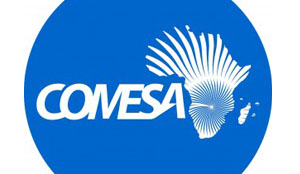 By HELEN ZULU –
By HELEN ZULU –
ZAMBIA registered the biggest market share worth of imports with 22 per cent in 2014, at the value of US$ 2.3 million, down from the 2013’s share of 26 per cent at $2.8 million.
The Common Market for Eastern and Southern Africa (COMESA) Business council Chief Executive Officer, Sandra Uwera said Zambia’s intra- COMESA imports were mainly copper, ores and concentrates.
Ms Uwera said on the export side, Zambia ranked fourth in the COMESA region with 11.5 per cent market share, at the value of $1.16 million with the major exports being copper, ores and concentrates.
She said, however, that for the private sector, there was need to work hand in hand to set up regulatory frameworks that were conducive to business thereby making Zambia one of Africa’s food basket.
Ms Uwera said this at the Zambia Manufacturers Regional Dialogue in Lusaka last week.
“According to COMESA statistics, Zambia registered the biggest market share worth of imports with 22 per cent in 2014, at the value of $ 2.3 million, down from the 2013’s share of 26 per cent at $2.8
million,” she said.
Ms Uwera implored Government to give a significant percentage of the public procurement to Small and Medium Enterprises (SMEs), who were composed of women, youth and the disabled.
She said if such could be supported by law, the private sector will work to develop realistic solutions to enable businesses meet the public procurement purchasing requirements.
COMESA director of investment promotion and private sector development Thierry Kalonji said issues of local competitiveness and regional partnerships were central, not only to the growth of the Zambian economy, but also to trade and regional integration for the COMESA region.
Mr Kalonji noted that the manufacturing sector was critical to its long-term economic prosperity and growth of Zambia and had a fundamental role to play in sustainable economic growth of COMESA
member states.
He said for COMESA countries whose level of industrialization and development was relatively lower than most developing countries and emerging countries’ the ability to develop export competitiveness and industries becomes important.
Mr Kalonji said for meaningful industrialization, the focus should be on integrating SMEs into the global, regional value chains and strengthening development of regional chains.
He said it was, therefore, pertinent that the challenges that SMEs face in growing their businesses and promote their integration in larger supply chains to ensure and facilitate trade and at the same time,
address issues of poverty alleviation and sustainable development of people were addressed.
“At COMESA, issues pertaining to developing the competitiveness of the manufacturing sector and SMEs lie at the heart of our regional integration and private sector development strategies,” Mr Kalonji said.






